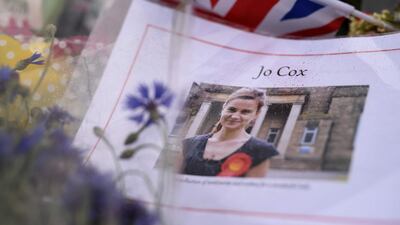When news first emerged of an attack on a gay nightclub in Florida, I was surprised and impressed that media outlets were calling Omar Mateen a terrorist.
Such an attack fitted into a pattern of other hate crimes against America’s gay and lesbian community – and I was impressed that the media was calling this attack what it was: violence intended to send a political message.
If only. It subsequently turned out that Mateen was labelled a terrorist less for his political views that for his melanin count. Had he been white, western media would have classed America’s worst mass shooting as a hate crime against a vulnerable minority, as opposed to a story with which to attack a vulnerable minority.
The airwaves would have been filled with talk about a troubled man, a man with a history of domestic violence, exploding the confusion of his sexuality across a nightclub he knew well. Of course, this is hard to prove, because it is not easy to run experiments with history.
Unless history supplies one. Four days after Mateen walked into the nightclub, another man walked up to a politician in the UK, shouted a political slogan, and proceeded to shoot and stab the politician to death. In the days since, the media coverage and political commentary of the murder of Jo Cox and her attacker has been a model of restraint, focusing on the woman who died and the complex series of events that led to Thomas Mair attacking her.
Already I can hear the question: but didn’t Mateen say he pledged allegiance to ISIL? Indeed so. And it would have been completely plausible to believe, in the early hours after the attack, that his rampage was influenced and even planned by ISIL.
But this is where the contrast is instructive. Because while the phone call to the FBI in which Mateen pledged “allegiance” to ISIL was taken as confirmation of his “Islamic radicalism”, the same standard was not applied to Mair’s shout of “Britain First”, the name of a far-right political party.
Instead, Mair’s invocation of the party was merely the starting point of a careful, judicious examination of known facts. The reporting used carefully moderated language, couched in caveats, framed by facts. Very little was assumed, even whether the killing was a political act. The possibility that Mair was mentally ill was considered, as well as the possibility that he had only shouted the slogan without considering its meaning.
Nothing of the sort happened with Mateen. His shout of “ISIL” was the starting gun, and the media and politicians were off, with barely a backward glance at the facts. The possibility that he might lie or have been deluded about his relationship to ISIL’s ideology was never considered.
Note that this is not one newspaper attacking other parts of the media. The National, in its earliest reports on Mateen, also raised the possibility that it was a terrorist attack, albeit couched in more careful language.
But this isn’t about specific media outlets. The media is a pack animal, and it follows the “narrative”. The narrative is an amorphous idea that suggests random events can be plotted together into an overarching story that gives some sense to the world.
The narrative, the meaning that certain events have, is not decided by only one media outlet. It is a distillation of reporting, of what politicians and other public figures say, and indeed even what the public is willing to accept. There’s a complicity to it, and most of us are implicated.
Politicians like narratives they can control (building a wall is easier than immigration reform), journalists like narratives they can report on (human faces are always better), and the public like narratives that empower them (“a certain level of danger in everyday life” is not a popular narrative). To some degree, we get the political debate we tolerate.
There will be those who disagree with my characterisation of this debate. They say that we need to call out attacks by ISIL supporters for what they are – to notice the thread that links these attacks. And that’s true. But when the attacks suggest a thread connecting ideas they don’t like, they cry “politicisation!”.
That is what gun-supporters said over Mateen’s rampage. It is what right-wing commentators have been saying about the killing of Cox. They dislike political points being made from political killings – even while they write columns, give speeches and make careers scoring political points against Muslim communities.
Why are they so afraid of politicisation? For the same reason those who urge caution over anti-Islam rhetoric do so: because words matter. They are afraid of the consequences of words, as they should be. Because they know that where language starts, politics follows. And that the stones of language too often end with broken bones.
falyafai@thenational.ae
On Twitter: @FaisalAlYafai


